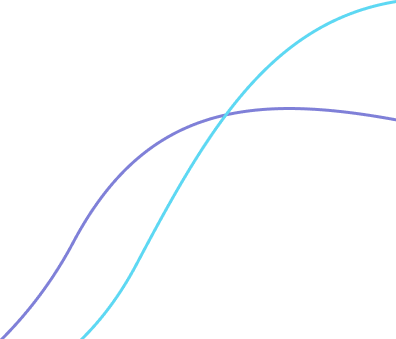Let’s debunk some myths about data sale and how you can benefit from it.
Technology has advanced more in recent decades than in all of its previous history. Data is part of this advance and its use will continue to increase.
Until now, data was collected from computers and mobile devices of all kinds through a multitude of services. But many everyday objects connected to the Internet (Internet of Things or IoT) are being incorporated from which data is also collected. This new revolution only reinforces the upward trend in data usage.
“There are expected to be 21.5 billion units connected to the Internet in 2025.”
The data that is collected is analyzed together, to extract patterns or trends that are used to improve a product or service, as well as work processes or even produce social advances.

Here are some of the false myths surrounding data sales.
MYTH: They are only used by large corporations.
While it is true that all large corporations collect and analyze data, all types of businesses can benefit from big data.
First, not only large companies can afford to buy data, there are affordable solutions for every type of business.
On the other hand, it is a mistake to assume that small businesses do not have access to the technology necessary to handle data. This technology is accessible and in many cases open source.
In addition, a small business will provide certain benefits in the management of data, for example, they will treat it in a more personalized and, possibly, effective way.
“Spending on data center systems is expected to reach $ 208 billion in 2021, a 2.8 percent increase from the previous year.”
MYTH: Data is only used for financial reasons.
The information obtained from the data can help a company to improve decision-making, to know if a sales strategy is working in real time, it allows knowing their consumers and anticipating their needs, as well as detecting failures in customer service. They also allow them to identify new opportunities. It is not surprising that they are such a valued tool as they are a great sales instrument.
But the data has uses beyond marketing. Its advantages have begun to be seen in other fields such as medicine. A current example is the use of big data to predict the curves of the pandemic. Another example in this area are the mobile applications developed during the health crisis to find out if an individual has been in contact with someone infected, and thus reduce infections.
Its potential has also been demonstrated in areas such as ecology. Green data, which is big data applied to environmental sustainability, has the multiple purpose of helping to reduce water and energy consumption, improve waste management or improve air quality.
The data also allow for rapid contingency and prevention measures for populations before they are affected by natural crises, such as droughts or floods, and can even prevent famines in the most vulnerable areas.
And these are just some of its uses focused on a social good. Many organizations are working with big data to promote progress, and many others are beginning to incorporate it.
MYTH: Data is eliminating many jobs.
No machine can replace the intelligence, perception and creativity of a person. Even for data analysis, human reasoning is needed. The data provides a knowledge base from which actions can be taken. They are a tool at our service.
MYTH: The data violates the privacy of the user.
The data that is collected from the user can only be destined for the use for which it has been authorized. In addition, users have rights with which to defend themselves such as access, rectification, suspension, opposition, limitation of treatment and portability.
Many users are not aware that this technology has been applied in many of their daily activities for years, allowing advances that improve them.
It is our right to know what data is collected and to decide whether to authorize its use.
From Monedata we want to contribute to improving the user experience, making it easier and more transparent, that is why our project has the advice of experts in the field and we comply with privacy regulations such as GDPR or their equivalent in other territories. We adapt to changes and help Publishers to respect the privacy of their users.
At Monedata we carefully choose the companies we decide to work with. We only incorporate them after careful analysis and testing in small apps.
We are also interested in knowing the use of big data by them and we try to have as personal a relationship as possible with its members.
An example of the use of the data collected by one of our collaborating companies is to improve mobile phone coverage, crossing anonymous location data and signal quality.
We cannot be held responsible for the use that these companies will make of the data, but if at any time we detect that they are acting improperly, our technology allows us to stop sharing data with that company immediately. A guarantee that we offer to Publishers that represents a differential advantage to integrating different SDKs independently.
Bibliography:
Illustration by Monica Galan





Comments